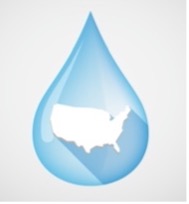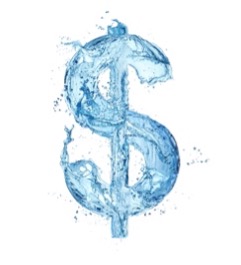Senators Introduce Western Drought Relief Legislation
Senator Dianne Feinstein (D-CA), joined by Senators Mark Kelly (D-AZ) and Kristen Sinema (D-AZ), introduced the Support To Rehydrate the Environment, Agriculture, and Municipalities Act (STREAM, S. 4231). S. 4231 is a comprehensive reauthorization of many the Water Infrastructure Improvements for the Nation Act’s (WIIN) expiring provisions. WIIN was enacted into law more than five years ago to support state and local agencies’ efforts throughout the western U.S. battle the impacts of persistent drought and develop resilient responses to climate change. S. 4231 includes a priority for public benefits as part of any storage, water recycling or desalination assisted projects to include fish and wildlife refuges, flood control, recreation, water quality, disadvantaged community drinking water needs, greenhouse gas emissions reductions, energy costs reductions, and emergency drinking water supply related to a state declared disaster declaration.
S.4231 is notable for provisions to boost federal support, provided projects deliver public benefits beyond the delivery of water, under U.S. Bureau of Reclamation (USBR) programs for water storage and alternative water supply infrastructure projects. S. 4231 provides $750 million to support water supply storage projects that are authorized under WIIN. The measure would also deliver $300 million for water recycling projects and boost the federal cost share to $50 million. However, projects funded under the existing water recycling program would be limited to the current $20 million limit. To enhance the use of “natural” storage projects, the bill would reserve $50 million of storage assistance to support natural water retention and release projects. Funding of desalination projects would also be assisted with $150 million authorized. Project assistance is limited to 25% of a project’s cost and only projects supported by a State and protective of the marine environment would be eligible. Seizing on the successes of EPA’s WIFIA program, the bill would establish a Reclamation Infrastructure Finance and Innovation Pilot Program (RIFIA) at USBR. RIFIA would be authorized at $150 million and if it returned similar benefits as WIFIA could stimulate $15 billion in new water infrastructure construction. Highlighting the drinking water needs of disadvantaged communities, the bill would deliver $100 million to support grants assistance to such communities so that water infrastructure projects could be designed and constructed to ensure safe and reliable water supplies.
S.4231 prioritizes ecosystem restoration and protection needs, authorizing $250 million to support projects that include planning, permitting, construction, acquisition of interest in land, water or conservation easements, R&D and project demonstrations, would be eligible for grants assistance to promote habitat conservation. Notably, any assistance, including the purchase of water for habitat needs would be in addition to actions mandated under the Central Valley Improvement Act and the Endangered Species Act. S. 4231 could be brought up by the Senate Committee on Energy and Natural Resources in the coming weeks, setting the stage for Senate consideration later this fall.
House Committee Advances Water Resources Development Act
 Last week, the House Committee on Transportation and Infrastructure reported out its Water Resources Development Act (WRDA) of 2022 (H.R. 7776). The bill, which the committee advanced by unanimous consent, is a narrowly focused package addressing funding and programmatic needs of the U.S. Army Corps of Engineers (USACE).
Last week, the House Committee on Transportation and Infrastructure reported out its Water Resources Development Act (WRDA) of 2022 (H.R. 7776). The bill, which the committee advanced by unanimous consent, is a narrowly focused package addressing funding and programmatic needs of the U.S. Army Corps of Engineers (USACE).
Committee leadership praised the bipartisan bill and noted that the committee is fulfilling a tradition of advancing bipartisan WRDA bills. Chairwoman of the Subcommittee on Water Resources and Environment, Grace Napolitano (D-CA), highlighted the bill’s commitment to address the needs of disadvantaged communities (DACs) by requiring USACE improve outreach to DACs by creating liaison programs in each Corps district region across the country.
The Senate Committee on Environment and Public Works reported out its WRDA bill earlier this month by unanimous consent. Following floor debate and votes on the two bills, the House and Senate are expected to conference the bills and pass a final WRDA 2022 package during the Lame Duck session.
Water Efficiency Legislation Introduced in Senate
 Senator Alex Padilla (D-CA) and Representative Jerry McNerney (D-CA) have introduced the Water Efficiency, Conservation and Sustainability Act in response to the continuing unrelenting drought conditions in the West. Under the bill, the U.S. Environmental Protection Agency (USEPA) would provide federal assistance to water agencies and nonprofits to adopt conservation programs and to provide payments to eligible households, including disadvantaged communities, to install water saving technologies. CASA submitted a letter of support on the legislation.
Senator Alex Padilla (D-CA) and Representative Jerry McNerney (D-CA) have introduced the Water Efficiency, Conservation and Sustainability Act in response to the continuing unrelenting drought conditions in the West. Under the bill, the U.S. Environmental Protection Agency (USEPA) would provide federal assistance to water agencies and nonprofits to adopt conservation programs and to provide payments to eligible households, including disadvantaged communities, to install water saving technologies. CASA submitted a letter of support on the legislation.
Among eligible activities would be faucets, showerheads, dishwashers, toilets, washers, flow metering and advanced metering infrastructure. Technologies certified under USEPA’s WaterSense program would also be eligible for assistance. Under the program, $50 million per year through 2028 would be authorized. Additionally, a new water loss control grants program is authorized, providing $50 million per year through 2028 to support audits. Another $40 million would be authorized to support the implementation of control programs to help prevent water losses identified under an audit. Lastly, to upgrade building codes to address water efficiency into the future, $20 million per year would be authorized to support the adoption of plumbing codes that support workforce training, enforcement, and compliance measurement programs.




 @CASA_CleanWater
@CASA_CleanWater